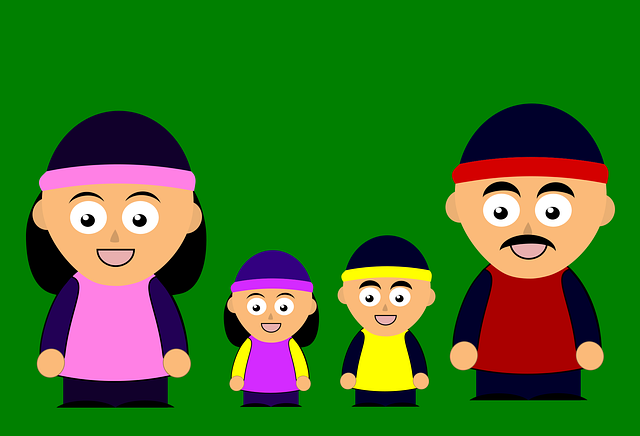Child custody laws prioritize the best interests of minor children in separation or divorce cases, offering frameworks for care, residence, and visitation decisions. Parents can mutually agree on arrangements like joint or sole custody through mediation or negotiation, resulting in a detailed custody agreement. If an agreement cannot be reached, a custody battle may ensue, requiring the assistance of a specialized custody lawyer to protect parental rights and guide them through the legal process. Key terms include child custody, custody lawyer, visitation rights, joint custody, sole custody, child visitation, custody agreements, parental rights, custody mediation, child custody attorney, custody battle, custody arrangement, parenting plan, and custody dispute.
Understanding child custody laws is crucial for any parent facing a separation or divorce. This comprehensive guide delves into the fundamentals of child custody, clarifying key concepts like joint custody versus sole custody and factors influencing custody decisions. We explore your rights, from parental responsibilities to visitation entitlements, and demystify custody agreements.
Navigating a custody dispute can be daunting, but understanding the process – from mediation to court appearances – empowers you. Learn when to engage a custody lawyer, steps in a battle, and how to select the right attorney. Finally, we provide insights into creating and adjusting a successful parenting plan post-arrangement.
- The Basics of Child Custody Laws
- – Definition and Importance of Child Custody
- – Legal Terms: Joint Custody vs. Sole Custody
- – Factors Determining Custody Decisions
The Basics of Child Custody Laws

Child custody laws are designed to ensure the best interests of a minor child are always at the forefront of any custody dispute. These legal frameworks dictate how decisions regarding a child’s care, residence, and visitation are made when parents separate or divorce. The primary goal is to foster a stable environment for the child while also recognizing the rights and responsibilities of both parents.
In many cases, parents may agree on a custody arrangement through mediation or negotiation, which can include joint custody (where both parents share legal decision-making and physical care), sole custody (where one parent has full responsibility), or a combination thereof. A custody agreement outlines specifics like visitation rights, parenting time, and the role each parent will play in the child’s life. When an agreement cannot be reached, a custody battle may ensue, requiring the involvement of a custody lawyer to represent each party and advocate for their respective parental rights.
– Definition and Importance of Child Custody

Child custody refers to the legal decision regarding where a minor child will live and who will have the authority to make important decisions on their behalf. It’s a crucial aspect of family law, as it directly impacts the future well-being and upbringing of children involved in a separation or divorce. The importance of understanding child custody laws cannot be overstated, especially for parents navigating a custody battle or looking to establish visitation rights. These legal frameworks ensure that a child’s best interests are at the forefront, providing guidelines for what constitutes a healthy and stable environment.
When couples face a custody dispute, they often have options, including sole custody, where one parent has complete decision-making power, or joint custody, where both parents share these responsibilities. A custody agreement, often drafted with the help of a custody lawyer, outlines specific arrangements for child visitation rights, parenting plans, and how decisions related to education, healthcare, and religious upbringing will be made. Mediation is also a common approach to resolving custody disputes amicably, allowing parents to negotiate terms without escalating to litigation. Engaging a qualified child custody attorney can provide guidance through this complex process, ensuring parental rights are protected while finding the best possible outcome for the child.
– Legal Terms: Joint Custody vs. Sole Custody

When navigating a child custody dispute, understanding key legal terms is essential. Two prominent concepts are joint custody and sole custody. In joint custody, both parents share decision-making power and physical possession of the child, fostering collaboration in raising the child. This arrangement promotes stability and continuity for the child while allowing both parents to remain actively involved in their life. On the other hand, sole custody grants one parent sole authority over major decisions regarding the child’s upbringing, including residence, education, and healthcare. While this may provide more consistent parenting, it also means the non-custodial parent has limited say in these aspects, yet retains visitation rights to maintain a relationship with their child.
Both joint custody and sole custody are determined based on what is in the best interest of the child, considering factors like each parent’s ability to provide stable care, parental fitness, and the child’s wishes (if age-appropriate). A custody agreement, often reached through custody mediation or established by a child custody attorney, formalizes these arrangements. It’s crucial to consult with a qualified child custody lawyer who can guide parents through the legal process, ensuring their parental rights and visitation rights are protected throughout a custody battle or custody dispute.
– Factors Determining Custody Decisions

When determining child custody, several factors come into play. The primary consideration is always the best interest of the child. Courts assess this by looking at a range of elements, including the child’s emotional and physical well-being, stability, and relationship with each parent. A custody lawyer can help navigate these complexities, ensuring that all relevant factors are considered fairly.
Joint custody, where both parents share legal and physical responsibility, is increasingly common. However, sole custody may be awarded to one parent if it’s deemed in the child’s best interest. Visitation rights, part of a custody agreement, dictate how much time each parent spends with the child. A parenting plan, often developed with the help of a child custody attorney, outlines these arrangements and can include specific details about visitation, holidays, and other special occasions. In cases where parents cannot agree on custody or visitation, custody mediation may be employed to facilitate a resolution outside of court, reducing the stress of a custody battle.
Understanding your rights and the legal landscape of child custody is crucial for ensuring a fair and healthy custody arrangement. Whether navigating a joint custody agreement or advocating for sole custody, knowing the factors influencing decisions can empower you to protect your parental rights. Consult a qualified custody lawyer to discuss your specific situation and explore options like mediation to resolve disputes amicably. With proper guidance, you can secure a parenting plan that aligns with your child’s best interests and yours. Remember, a successful custody outcome often begins with informed understanding and proactive legal counsel.
